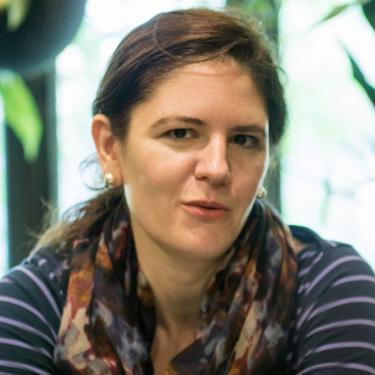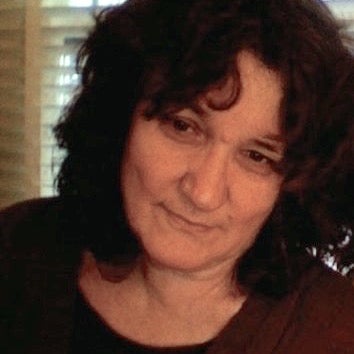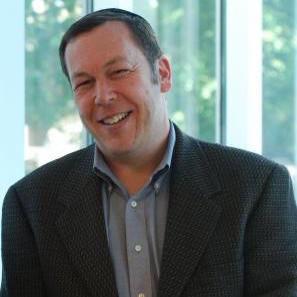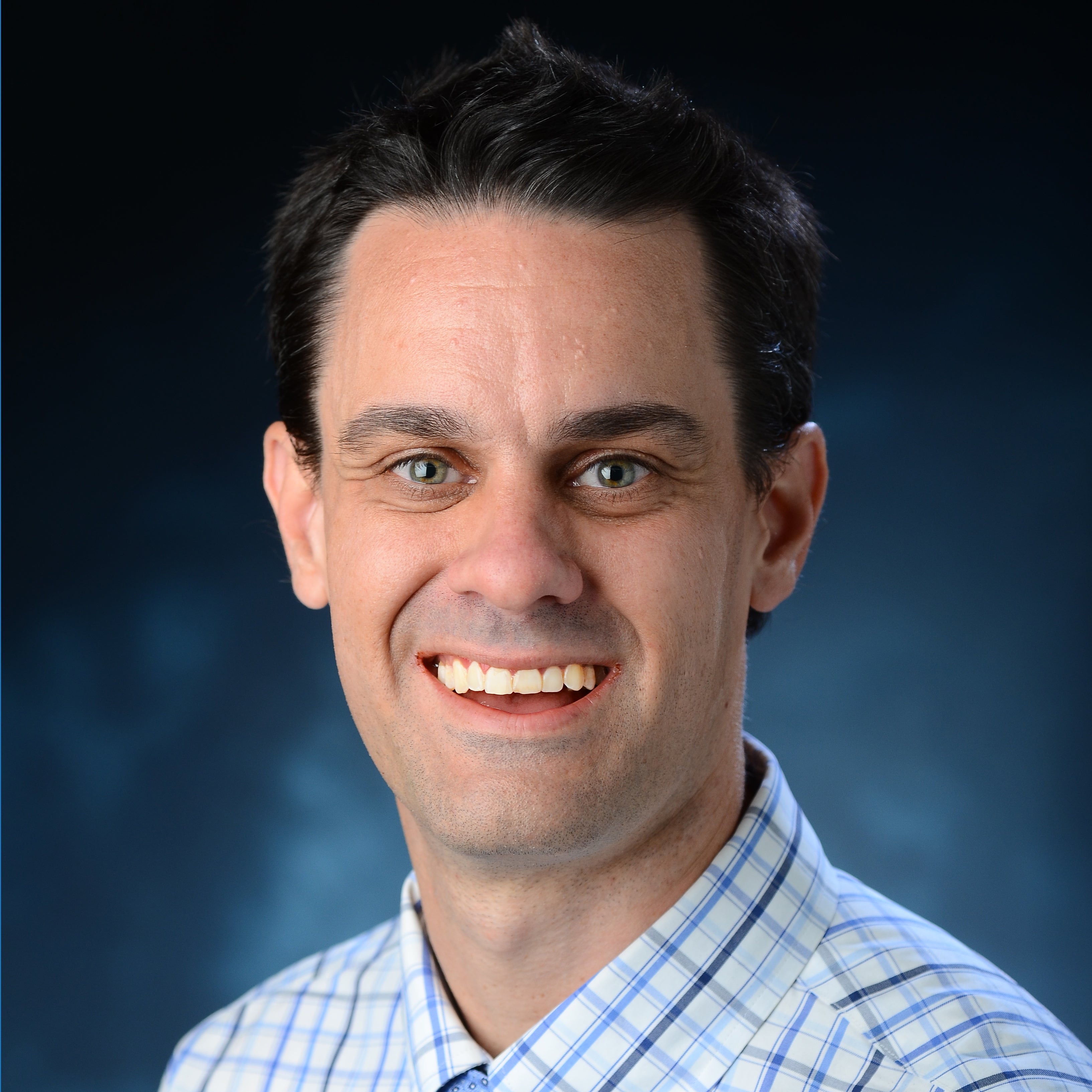Past Events 2016-2017
"Does God Make Mistakes? Should God Repent?" Inaugural Peak to Peak Lecture in Aspen with Prof. Elias Sacks
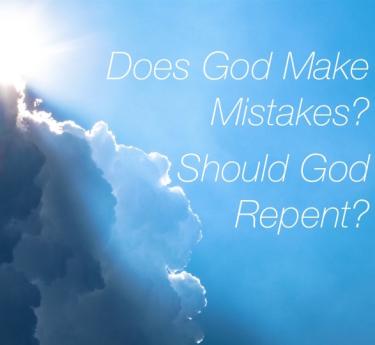
The inaugural event of the CU Boulder Peak to Peak Lecture Series, Elias Sacks, assistant professor of Religious Studies and Jewish Studies at the University of Colorado Boulder, gave a talk titled, “Does God Make Mistakes? Should God Repent?” at Aspen Jewish Congregation on Friday, August 26, 2016 during Shabbat services at 6:00PM.
The Jewish High Holidays are a time when people gather together to reflect on their lives, engage in teshuvah (repentance), and vow to do better. But are people the only ones called to repent? Does God also make mistakes? If so, does God have to repent? As the Jewish High Holiday season approaches, Professor Sacks’ talk explored ancient and modern views on these questions, asking whether God, too, has regrets and should be engaging in repentance.
Professor Sacks’ talk was generously hosted by community partner Aspen Jewish Congregation as part of the CU Boulder Peak to Peak Lecture Series. This series brings CU Boulder humanities scholars to communities around Colorado to share innovative perspectives on historical figures, events and world views. It is offered through the Program in Jewish Studies, a non-religious academic program that explores Jewish culture, history and society, in partnership with the CU Boulder Office for Outreach and Engagement’s Arts and Humanities Initiative.
Jewish Studies Annual Student Meet and Greet

The Jewish Studies Student Advisory Board hosted CU students for its annual Jewish Studies Student Meet & Greet, Wednesday, September 7 at The Point Cafe. The meet and greet allows students to meet professors and hang out with Jewish Studies majors and minors in a casual setting. The event was open to ALL students of ALL backgrounds, Jewish and non-Jewish.
Film Screening: Oriented
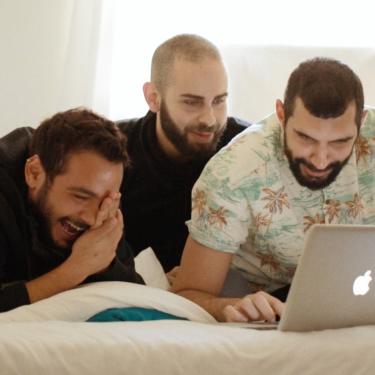
Hosted by the Boulder Jewish Community Center, this film screening of Oriented, a new film about being gay and Palestinian in Israel, featured David Shneer, Chair of Religious Studies and Professor of History, Religious Studies, and Jewish Studies, in conversation with the film's director Jake Witzenfield.
Film synopsis: They are gay, they are Palestinian, and neither their families in the villages they grew up in nor their hard-partying friends in the nightclubs of Tel Aviv can fully understand them. The three friends who live and work in Tel Aviv are politically active and assertive about their right to define their own complex identity — and they’re not at all interested in conforming to the expectations of others. “Oriented” is an important, insightful, and moving film. This Boulder premiere was a special PrideFest collaborative screening, hosted by the Boulder Jewish Community Center and co-sponsored by CU's Program in Jewish Studies, CU's Department Religious Studies, and the ADL.
False Jewish Messiah or Puritan Hero?: CU Boulder Peak to Peak Lecture in Trinidad, CO
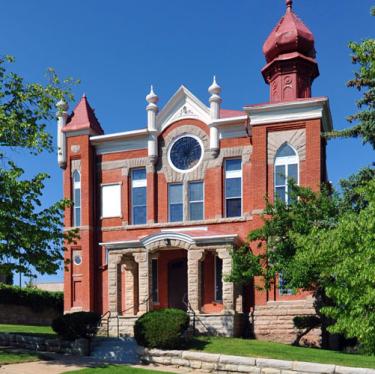
As part of the new CU Boulder Peak to Peak Series, Nan Goodman, Director of the Program in Jewish Studies and Professor of English at the University of Colorado Boulder, delivered a captivating talk about Sabbatai Sevi, an eccentric 17th century Jew who declared himself the Jewish Messiah, inspired the greatest messianic frenzy in Jewish history, and, despite a quick downfall, became an unlikely hero for Puritans in the New World. The event will took place in Trinidad, CO in Temple Aaron, the oldest synagogue in Colorado, and provided a chance for participants to celebrate this majestic building and its rich Trinidad history before it closed its doors after 127 years.
In addition to Professor Goodman’s talk, the evening featured an artists and authors soirée, the culminating event of the Trinidad Literary Arts Festival hosted by the Trinidad Area Arts Council, as well as a short discussion of the history of Temple Aaron by Kirby Stokes, director of the Trinidad History Museum, and Randy Rubin, whose family has served as synagogue caretakers since the 1980s. The talk was followed by a gallery exhibition featuring artwork by local Trinidad artists and an oral history opportunity for participants to share their stories related to Temple Aaron and the Jewish history of Trinidad.
Counter culture and cultural movements are no stranger to Trinidad. From Drop City, America’s first rural hippie artists’ commune, to the present day’s ArtoCade art car parade, and the first “Space to Create” state program for affordable housing for artists, Trinidad is again making history. This event was brought to you by the Trinidad Area Arts Council, Corazon de Trinidad Creative District, History Colorado Trinidad and the Rubin family in partnership with the CU Boulder Program in Jewish Studies and the CU Boulder Office for Outreach and Engagement.
Magicians, mystics, mischief-makers and messiahs take center stage in the brand new CU Boulder Peak to Peak Lecture series, a program that brings CU Boulder humanities scholars to communities around Colorado to share innovative perspectives on historical figures, events and enduring questions. It is offered through the Program in Jewish Studies, a non-religious academic program that explores Jewish culture, history and society, in partnership with the CU Boulder Office for Outreach and Engagement Arts and Humanities Initiative.
Student Movie Night: The Band's Visit
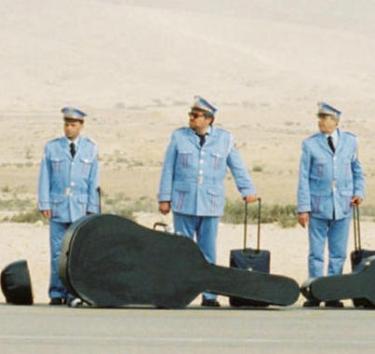
esday, October 25, 2016
Hosted by the Jewish Studies Undergraduate Student Advisory Board, this student movie night featured the award-winning comedy, The Band's Visit, with a talkback by Sasha Senderovich, Assistant Professor of Russian and Jewish Studies. Synopsis from IMDb: The eight Egyptian musicians who comprise the Alexandria Ceremonial Police Orchestra arrive by mistake in a small town in Israel's Negev Desert. Their booking set for a different city, and with no transportation out of the town or any hotels to stay at, the band settles at a restaurant owned by Dina (Ronit Elkabetz), who offers them lodging. Overcoming ethnic barriers, the Egyptians find diversion and companionship with the Israelis through a pervading undercurrent of shared melancholy. **Cannes Film Festival Prize Un Certain Regard and Official Selection at both the 2007 Toronto Film Festival and the 2007 Telluride Film Festival**
Professor Senderovich will be teaching Introduction to Jewish Culture (JWST/GSLL 2350) this Spring 2017, T/TH @ 3:30PM - 4:45PM!
Rachel Gordan, PhD 2016 Jim and Diane Shneer Visiting Fellow in Post-Holocaust American Judaism
What is Sephardic Food?: Sephardic Cooking Demonstration with Professor Nancy Sternbach

The Program in Jewish Studies along with the Department of Spanish and Portuguese and CU's Campus Dining Services, presented a delicious evening featuring a Sephardic cooking demonstration with Nancy Sternbach, PhD, Professor of Spanish and Latina Studies at Smith College. Professor Sternbach led her audience through a history of Sephardic food and how to prepare a variety of tasty, vegetarian, Sephardic dishes.
During her visit, Professor Sternbach also presented a faculty and student colloquium titled "The Food They Carried: Sephardic Migrations and Diasporas," in which she talked about her quest to discover "Sephardic" food through her a personal odyssey from the Bronx, to Istanbul and Sofia, to cookbooks of congregations as she gathers recipes for her own cookbook.
Nancy Saporta Sternbach, PhD is a professor of Spanish and Latina Studies at Smith College where she teaches courses on Latin America, U.S. Latinas and the cultures of food in Spanish-speaking countries. She has written widely on Latina and Latin American feminisms, especially Latina playwrights. Her current research is devoted to producing a Sephardic cookbook. To that end, she spent a semester in Istanbul under the auspices of a Fulbright fellowship gathering material and interviewing Sephardic women.
The Holocaust: Then and Now, Spanning the Void
Thursday, January 26, 2017
The Program in Jewish Studies, the William A. Wise Law Library, the Department of Germanic and Slavic Languages and Literatures, and cosponsors at the University of Colorado Boulder honored International Holocaust Remembrance Day with a public lecture by visiting scholar Professor Nils Roemer.
The voids and empty spaces in the Jewish Museum in Berlin evoke destruction and absence. In this public lecture, Professor Nils Roemer aims to explore these absences and voids as important aspects of remembrance, particularly in relation to public commemorations of the Holocaust in museums and on Holocaust remembrance days. He will develop these themes of absence and advance models of remembrance that view the Holocaust as an historical event of the past amid the enormous void of an annihilated future.
Nils Roemer is the Stan and Barbara Rabin Professor in Holocaust Studies and the Director of the Ackerman Center for Holocaust Studies at the University of Texas at Dallas. He received his PhD in History from Columbia University in 2000.
In addition to his numerous published articles, Professor Roemer is the author of Jewish Scholarship and Culture in Nineteenth-Century Germany: Between History and Faith (2005) and The Story of Worms: German Cities – Jewish Memories(2010). He is currently finishing a book-length study on Central European Jewish travel writing in the twentieth century.
Professor Roemer serves as a board member for the Leo Baeck Institute in London and is an external reviewer for multiple scholarly journals. He has received numerous fellowships, including from the Center for Advanced Jewish Studies at the University of Pennsylvania.
Lawyers Without Rights: Jewish Lawyers in Germany Under the Third Reich
January 5, 2017 - January 30, 2017
The Lawyers Without Rights: Jewish Lawyers in Germany Under the Third Reich exhibit was available for viewing from January 5, 2017 through January 30, 2017 in the William A. Wise Law Library in the Wolf Law Building on the CU Boulder campus. The exhibit is sponsored by the William A. Wise Library at the University of Colorado Law School and the CU Program in Jewish Studies in conjunction with the American Bar Association and the German Federal Bar.
Jewish lawyers in Nazi Germany were one of the first populations to be targeted by the regime. While a sizable group emigrated, others went into hiding, ended up in jail, or worked in concentration camps. The fate of those judges and lawyers are highlighted in this exhibit.
The exhibit has been shown in nearly 100 cities in Germany, the United States and other parts of the world. The idea for the exhibit was conceived in 1998 when an Israeli lawyer asked the regional bar of Berlin for a list of Jewish Lawyers whose licenses had been revoked by the Nazi regime.
“The regional bar decided not only to research a list of names but also to try to find out more about the fates behind all those names,” said Axel Filges, past president of the German Federal Bar. “Some were able to leave the country after the Nazis came into power, but very many of them were incarcerated or murdered. The non-Jewish German lawyers of those days remained silent. They failed miserably, and so did the lawyers’ organizations. We do not know why.”
After the Berlin bar transformed its research into an exhibit, other regional bars began asking whether they could show it and add their own research. “So, like a puzzle, a portrait of the fate of Jewish lawyers in Germany has emerged step by step,” Filges said.
The exhibit was accompanied by the public lecture with Professor Nils Roemer on Thursday, January 26, 2017.
The Puritans: Heirs to the Hebrew Bible
Arts, Culture, and Education at the J Scholar Series with Professor Nan Goodman
Thursday, February 23, 2017
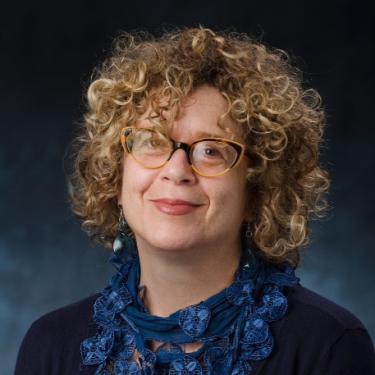
Many people know that the Puritans - the Protestant Reformers who came to New England in the seventeenth century - saw themselves as heirs to the ancient Jews, referring to themselves the “surrogate Israel.” Less well known, however, is the deep intellectual and religious investment of the Puritan elite in the Hebrew Bible and Jewish history, ancient and contemporaneous. This talk examined some of these strange and often mysterious connections.
Professor Nan Goodman, Director of the Program in Jewish Studies and Professor of English, works at the intersection of the law and the humanities. She is rostered in the English Department at CU, has taught at CU’s law school, and in the spring of 2011 served as a Visiting Professor of Law and the Humanities at Georgetown Law Center. Professor Goodman has a PhD from Harvard and a JD from Stanford.
1492: Columbus, the Jews, and the Messiah in Spain
with Professor Matt Goldish
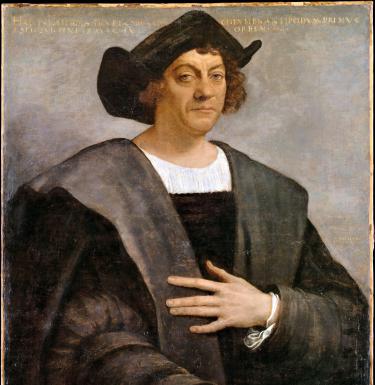
2017 Annual Sondra and Howard Bender Visiting Scholar
Thursday, March 16, 2017
The Program in Jewish Studies, the Center for Western Civilization, Thought & Policy, the Department of History, and the Department of Spanish and Portuguese at the University of Colorado are pleased to present a public lecture featuring the 2017 Annual Sondra and Howard Bender Visiting Scholar, Professor Matt Goldish.
In his public lecture, Professor Goldish will focus on three enormous events that occurred in Spain during 1492: the end of the centuries-long war to end Muslim rule in the Iberian peninsula; the voyage of Christopher Columbus; and the expulsion of the Jews. These events are intimately connected, and their intersection runs directly through Spanish expectations about the messiah. Is it possible that we did not learn everything there is to know about Columbus in school? Find out from a Columbus resident.
Matt Goldish is a Professor of History and Jewish Studies at Ohio State University and holds the Melton Chair in Jewish History. He is the Program in Jewish Studies' fifth annual Sondra and Howard Bender Visiting Scholar.
Professor Goldish's research interests focus on the Western Sepharadi Diaspora and the Portuguese Conversos of Amsterdam, London, and Hamburg. His book, The Sabbatean Prophets, deals with the role of prophecy in the great messianic movement of Sabbatai Zevi, which swept the Jewish world in 1665-1666. Additionally, he works on the seventeenth century, and his monograph, Judaism in the Theology of Sir Isaac Newton, revolves around the impact of Jewish ideas and literature on European intellectuals at the dawn of the Enlightenment. His latest book is Jewish Questions: Response on Sephardic Life in the Early Modern Period (2008).
Cosponsored by:

This event is sponsored in part by a Faculty Grant from the Center for Western Civilization, Thought & Policy.
Public Panel: Religion and Human Rights After the 2016 Election
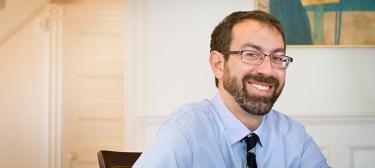
Thursday, April 6, 2017
What will the future of human rights look like after the 2016 election? How have religious traditions shaped our thinking about human dignity and democracy in the past, and how might the relationship between religion and human rights change in a time marked by developments such as populist movements, Brexit, and the election of Donald Trump? Our guest scholar, Professor Samuel Moyn, was joined by an interdisciplinary panel of CU and DU faculty to explore these questions, relfect on the fraught history—and uncertain future— of religion and human rights.
The panelist included Greg Johnson (Religious Studies, CU), Susan Kent (History, CU), Carl Raschke (Religious Studies, DU), and Joshua Wilson (Political Science, DU).
Samuel Moyn is Jeremiah Smith, Jr. Professor of Law and Professor of History at Harvard University. He received a doctorate in modern European history from the University of California- Berkeley in 2000 and a law degree from Harvard University in 2001. He has written several books on European intellectual history and human rights history, including The Last Utopia: Human Rights in History (Harvard University Press, 2010), and edited a number of others. His new book, based on the Mellon Distinguished Lectures at the University of Pennsylvania, is Christian Human Rights (2015).
Professor Moyn's visit marks the third annual Week of Jewish Philosophy, a joint initiative presented by DU's Center for Judaic Studies and CU's Program in Jewish Studies. This year's programs are generously cosponsored by the DU-Iliff Joint Doctoral Program in the Study of Religion, DU's Department of Philosophy, CU's Department of Religious Studies and CU's Department of History.
Magic, the Bible, and the Biblical Imagination in Jewish Mysticism
CU Boulder Peak to Peak Lecture and CU Carbondale Speakers Series
Saturday, April 15, 2017
Samuel Boyd is an Assistant Professor of Religious Studies and Jewish Studies at the University of Colorado Boulder and a scholar of biblical texts and the ancient Near East. He researches the Bible through various critical methods and in light of wider historical contexts to understand both the production of these documents as well as their history of interpretation. His particular areas of research include the development of the Pentateuch (or first five books of the Hebrew Bible), legal hermeneutics in the ancient Near East, language ideology in the ancient world, and ritual theory applied to biblical texts.
This event is brought to you by Carbondale Arts and the Carbondale Branch Library in partnership with the CU Boulder Program in Jewish Studies and the CU Boulder Office for Outreach and Engagement. Magicians, mystics, mischief-makers, and messiahs take center stage in the CU Boulder Peak to Peak Lecture Series, a program which brings CU Boulder humanities scholars to communities around Colorado to share innovative perspectives of historical figures, events and enduring questions. It is offered through the Program in Jewish Studies in partnership with the CU Boulder Office for Outreach and Engagement Arts and Humanities Initiative.
Legalizing 2nd Class Citizenship:
Legislation's Role in Nazi Germany and the Holocaust and What We can Learn from It in Contemporary America
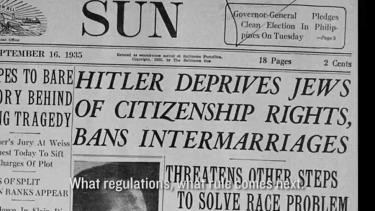
Monday, April 24, 2017
Professor David Shneer will give a public lecture on Monday, April 24 at the Colorado State Legislature in honor of Holocaust Commemoration Day 2017. In this lecture, Professor Shneer will talk about the Legislation's role in the Holocaust and what contemporary American can learn from it.
Professor David Shneer is the Louis P. Singer Endowed Chair in Jewish History and Professor of History, Religious Studies and Jewish Studies. His research focuses on 20th century European, Russian, and Jewish history and culture. His newest book, Through Soviet Jewish Eyes: Photography, War, and the Holocaust (Rutgers University Press, 2011), finalist for the National Jewish Book Award and winner of the 2013 Association for Jewish Studies Jordan Schnitzer Prize, looks at the lives and works of two dozen Soviet Jewish World War II military photographers to examine what kinds of photographs they took when they encountered evidence of Nazi genocide on the Eastern Front.
Mediterranean Seminar Spring 2017 Workshop
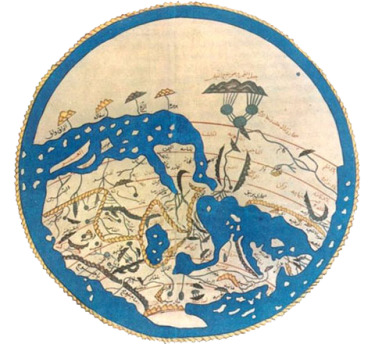
April 21-22, 2017
The Mediterranean Seminar (www.mediterraneanseminar.org), and CU Mediterranean Studies Group and Program in Jewish Studies at the University of Colorado at Boulder invite participants to the 2017 Mediterranean Seminar Spring Workshop on the subject of “Mysticism and Devotion,” to be held the campus of the University of Colorado at Boulder on 21 & 22 April in the “Skybox” (top floor) of the Duane Physics building.
The event is free, admittance is by registration only. Space is limited. Registered participants should attend the whole event.
For general information contact: mailbox@mediterraneanseminar.org.
To register and to receive the workshop papers, and for logistical and site-specific information, please contact Jeffrey Baron (jeffrey.baron@colorado.edu).
Workshop Sessions
Workshop sessions will take place on Friday, 21 April, with registration/coffee beginning at 9:15am, followed by three workshop papers and a presentation by our first featured scholar, Prof. Amy Remensnyder.
Workshop Papers
- Marla Segol (Jewish Studies, SUNY Buffalo): “Mystical Embryologies: Knowledge, Practice, and Devotion”
Respondent: Nan Goodman (English and Jewish Studies, CU Boulder) - Marianne Kupin-Lisbin (History, U of Rochester): “New Approaches in Understanding the Lived Religious Culture of the Ottoman Balkans”
Respondent: Sabahat Adil (Asian Languages and Civilizations, CU Boulder) - Anna Akasoy (Islamic Intellectual History, Hunter College): “Imaginary Spaces of Devotion in Andalusi Mystical Poetry”
Respondent: Cyrus Zargar (Religion, Augustana College)
Featured Scholar
- Amy Remensnyder (History: Brown University): “Does the Sea Matter to the History of Mediterranean Devotion?”
Round-Table Sessions
Round-table sessions will take place on Saturday, 22 April, with registration/coffee beginning at 9:15am, and will feature three round tables, followed by a presentation by our second featured scholar, Dr. Maribel Fierro.
Mysticism and Doctrine - Are they Compatible or do they Conflict?
- Moderator: Sharon Kinoshita (Literature, UC Santa Cruz)
- Michelle Hamilton (Spanish & Portuguese, Minnesota)
- Janine Peterson (History, Marist College)
- Nathan Fisher (Religious Studies, UC Santa Barbara)
- Aun Hasan Ali (Religious Studies, CU Boulder)
- Robert Pasnau (Philosophy, CU Boulder)
Do Mystical Traditions have a Politics?
- Moderator: Claire Farago (Art History, CU Boulder)
- Hartley Lachter (Religion, Lehigh University)
- Núria Silleras (Spanish and Portuguese, CU Boulder)
- John Curry (History, University of Nevada Las Vegas)
- Matt Lynch (Religious Studies, UNC Chapel Hill)
- Edward Holt (History, Saint Louis University)
- Benjamin de Lee (History, CUNY Cortland)
"Mediterranean Religion": Does it Function as a Category?
- Moderator: Brian A. Catlos (Art History, CU Boulder)
- Sabahat Adil (Asian Language & Civilizations, CU Boulder)
- David Williams (History, niversity of Saint Katherine & Royal Holloway)
- Kevin Blankinship (Arabic Literature: University of Chicago)
- Karen Pinto (History: Boise State)
- Allen Fromherz (History: Georgia State)
Featured Scholar
- Maribel Fierro (CSIC, Madrid): “The Political Mystics of al-Andalus”
Organizers
- Brian A. Catlos (CU Boulder & UC Santa Cruz)
- Sharon Kinoshita (UC Santa Cruz)
- Nan Goodman (CU Boulder)
This event is made possible by the generous support of a CU Boulder College of Arts and Sciences Innovative Seed Grant, the Program in Jewish Studies, Religious Studies, the Center for Western Civilization, History, Philosophy, Asian Languages and Civilizations, Humanities, Philosophy and the College of Arts and Sciences. Administrative support provided by Religious Studies (CU Boulder).
Agency in the Midst of Oppression: Jewish Doctors, Ghettos, and Public Health
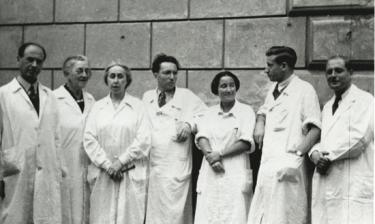
Wednesday, April 26, 2017
coloradobioethics.org
In honor of Holocaust Remembrance Day 2017, the University of Colorado’s Center for Bioethics and Humanities and the Program in Jewish Studies are pleased to host an evening panel with Dr. Tessa Chelouche, Co-Director of the Maimonides Institute for Medicine, Ethics and the Holocaust.
Dr. Chelouche and respondents will discuss the ways in which Jewish doctors practiced their profession in the most impossible conditions of the Nazi regime. The panel will explore the historical significance of Jewish doctors’ medical and public health work within various ghettos and camps during the Holocaust, and contextualize how knowledge of these events contribute to contemporary ethics around Holocaust memory and present-day health care practices.
In addition to Dr. Chelouche, panelists will include CU’s Matthew Wynia, MD, MPH, Director of the Center for Bioethics and Humanities; Daniel Goldberg, JD, PhD, Associate Professor at the Center for Bioethics and Humanities; and Elias Sacks, PhD, Assistant Professor of Religious Studies and Jewish Studies.
Tessa Chelouche, MD, is the Co-Director of the Maimonides Institute for Medicine, Ethics and the Holocaust. She is a family physician and renowned scholar of medical history. Originally from South Africa, Dr. Chelouche has lived in Israel for the past 38 years working as a family physician and director of a primary care family medical practice. She has served as Co-Director and Lecturer of a pre-graduate course on "The Study of Medicine and the Holocaust" for medical students as part of the Rappaport Faculty of Medicine at the Technion Institute in Haifa, Israel for the past ten years. She has published numerous articles on the subject of medicine and the Holocaust and is the editor of the "Casebook on Bioethics And the Holocaust" for the United Nations Educational Scientific and Cultural Organization (UNESCO).
“Agency in the Midst of Oppression” is part of a series of events hosted by the Center for Bioethics and Humanities at the CU Anschutz Medical Campus commemorating the 70th anniversary of the Nuremberg Doctors’ Trials. Visit www.coloradobioethics.org for a full schedule of events.
The panel is hosted by the Center for Bioethics and Humanities at the University of Colorado Anschutz Medical Campus and the Program in Jewish Studies at the University of Colorado Boulder. It is made possible by the Maimonides Institute for Medicine, Ethics, and the Holocaust and the M.B. Glassman Foundation.


